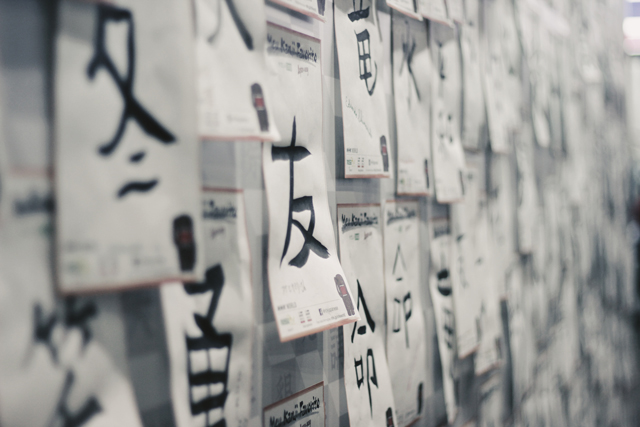Passing the JLPT N1 – These Methods Worked for Me

by Shi-yon
The Japanese Language Test is a challenge for everyone. Shi-yon talks about preparation methods and how to keep going.
It took me 3 attempts and 2 years to get the N1, even though I was working in Japan and using the language every day. The fact that other people pointed out to me that Japanese must be easy for Koreans, only added pressure but after some detours I found that focusing on what motivates me and understanding the test finally let to the results I was hoping for.
コンテンツ
Why things didn’t go well at first
I had taken the JLPT N1 twice in the past and failed. The first time, I simply didn’t know enough Japanese. I had just passed N2 the year before and part of me was taking the test only to see what it was like.
The second time around, I studied hard and was sure that I would pass. But I didn’t. Imagine the feeling.
So, there it was, my third attempt in the summer of my second year working in Japan. Determined to do everything in my power to make sure I pass, I asked my Japanese coworkers for advice and started analyzing how I studied. Once I could identify my bad study habits, I went on to fix them one by one. All that preparation seems to have paid off, and I finally managed to pass.
1. Kanji, Grammar and Vocabulary
This part was really all about memorization and repetition. Nevertheless, bothering your surroundings whenever you can for help is also not a bad strategy.
Kanji
I’m sorry to say, but there is no guide for kanji, just plain old studying. Keep at it long enough, and you will start to recognize patterns. Then, slowly things will start making sense, like pieces of a puzzle fitting together.
Focus on kanji that look or sound similar, as the test usually features Kanji that are easily confused. Personally, I focused on my reading ability and didn’t spend much time learning how to write Kanji. One doesn’t need writing skills for N1, and even for my job search, I found remembering how to write the Kanji up to N3 was sufficient to get through all tests.
Grammar
There are a lot of grammar points to learn but the question patterns are pretty standard. Be sure to do practice tests and make it a daily habit to answer old or similar questions for repetition. This way, you can cover the areas most likely to show up. Questions from previous tests will also teach you the answer patterns, making it easier to guess the right answer during the test even if you are not sure.
N1 grammar is surprisingly absent from day-to-day conversations in Japan. You are most likely to find it in books, while your coworkers and friends will usually opt for the grammar structures that show up in N2. By the way, you should learn those too, since many are used in similar situations as N1 grammar, they sometimes show up in the test.
Vocabulary
The first time I studied a lot in a short amount of time and it didn’t go well. The last time I spent two hours every weekend over 6 months and used a vocab book for N1 to study new vocabulary. When I had time, I would review the words during the week.
I always tried to use the words I studied to remember them better. Sometimes that leads to an interesting turn in the conversation, at other times it got me an irritated stare, but every week I noticed I could communicate a little better.
Considering the sheer number of words one should know for the test, whether one happens to remember the few that actually come up, is mostly luck. Instead of just focusing on vocabulary lists, combine this with reading practice for better results.
2. Reading
For me, reading was by far the hardest part. Since the reading section is timed, having a plan is important.
Always start by reading the question and find out what it is asking for. Without correctly understanding the question you are losing time, having to go back to things you already read. Then skim the text for the answers, underlining or marking relevant passages, so you can find them again quickly for reference or checking the details.
The number of short, medium, and long texts are always about the same, so set a time limit for each of them and move on to the next before running out of time. If you finish early you can come back to difficult passages without the danger of missing points in the later sections.
When preparing I found the answer strategies, explanations, and common words, introduced in practice books really helpful. For sections I still didn’t understand I asked a coworker for advice and it really helped me to find exactly which areas I was having trouble with.
3. Listening
The listening section covers more real-life contents than the sometimes outlandish reading part. When living or working in Japan listening is often the easiest part of the test, because many of us improve without noticing, just by having conversations in Japanese and listening to the people around us.
Listening should take the least preparation time, but to make sure to maximize your score go over a few old questions. What you want to do with them is; find out what words they use in their questions. Study them if there are any you don’t know yet, you really don’t want to be stuck not understanding the question.
Secondly, get used to the test format. The question types and their order is fixed, so being able to anticipate the type of question will help you get ready and drown out the noise. When doing practice questions, I always tried to take as many notes as possible, so that during the test I would be able to gather enough information to be able to quickly make a judgment for those areas where the question was asked at the very end.
Why bother with N1?
For me, studying for the N1 after joining my company was a way to have a clear goal that would keep me motivated to continue improving my Japanese. For others it might be necessary to get a job in the first place. In the end, it really comes down to motivation and endurance. Continuous practice and finding effective study methods is important, but so is keeping in mind what made you want to study Japanese in the first place.
You want to work in Japan?
Why not get help from experienced professionals to realize your goal!
Find out more Business Japanese School in Tokyo






